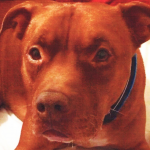Whether a dog is a prohibited type of dog is a question of type rather than breed and a dog will be deemed to be a prohibited type of dog if it measures up to the relevant breed standard, regardless of the parentage of the dog. Whether or not a dog is a prohibited type is a matter for expert opinion and we work with the best experts in the country.
Possession of a Prohibited Type of Dog
Section 1 of the Dangerous Dogs Act 1991
Section 1 Dangerous Dogs Act 1991 makes it unlawful to be in possession of any of the following types of dogs unless the dog has been granted a certificate of exemption and the conditions of exemption are complied with:
- Pit Bull Terrier
- Dogo Argentino
- Japanese Tosa
- Fila Braziliero
- XL Bully
If the court decides your dog is one of the five prohibited types, then it can make either a destruction order for your dog to be destroyed or a contingent destruction order which allows your dog to return home subject to conditions. The court will only make a contingent destruction order if it is satisfied that you are a fit and proper person to have a dog of that type and that your dog does not pose a danger to the public. A contingent destruction order allows you to apply to the Index of Exempted Dogs at DEFRA for your dog to be exempted from the prohibition. Your dog will have to be neutered, microchipped and have a policy of third-party insurance (available by taking out a membership with Dogs Trust) before you can apply for exemption. There is also an application fee which is currently £92.40. Once your dog has been exempted, it will be subject to stringent conditions for the rest of its life, including:
- Lead and muzzle in a public place
- Kept in secure conditions to prevent escape
- Notify DEFRA if you move home
- Notify DEFRA if the dog is exported or dies
- Live with the registered keeper at the registered address save for up to 30 days in any 12-month period
Failure to comply with these conditions could lead to your dog being seized and you being prosecuted.
Section 4B of the Dangerous Dogs Act 1991
Section 4B of the Dangerous Dogs Act 1991 is the civil equivalent of section 1. This section allows the police to apply to the magistrates’ court for a destruction order, or a contingent destruction order, without the owner being prosecuted. By bringing proceedings under section 4B, an owner avoids getting a criminal record and the case is dealt with much more quickly than if a prosecution is brought under section 1 however, as these are civil proceedings, no legal aid is available and the cost of obtaining expert evidence and legal representation can be expensive.
At Wheldon Law, we have access to the very best breed identification experts and canine behaviourists. We will do everything in our power to get your dog back home to you as soon as possible. We also work closely with a number of charitable and not-for-profit organisations who may be willing to assist with funding cases.
Importing Prohibited Dogs into the UK
It is not illegal to import a prohibited type of dog into the UK, but it is an offence to be in possession of one. At Wheldon Law, we have had great success in advising and assisting numerous owners who wanted to bring their dogs into the UK but feared they may fall foul of the strict rules regarding prohibited dogs. All of these dogs arrived safely in the UK without any problems. Please call us on 01442 242999 or email us at hello@wheldonlaw.co.uk for further information as to how we can assist you in this regard.
Appointing a New Keeper for a Prohibited Dog
If you are the owner of a Pit Bull Terrier, a Japanese Tosa, a Dogo Argentino or a Fila Brasileiro that has not been through the exemption process or if your dog is exempted but the conditions of exemption have been breached, then there are very limited circumstances in which a person other than its owner can be appointed as the registered keeper. If the dog is coming before the court for the first time, then the only person that can apply to the court to be the registered keeper is either the owner or the person in charge at the relevant time. The person in charge at the relevant time can be the person from whom the dog was seized or it could be a person who has had significant responsibility for the dog in the past (e.g. a family member, a previous owner or someone who has looked after the dog in kennels).
If a dog is already registered on the Index of Exempted Dogs and the registered keeper dies or becomes seriously ill and unable to look after it, it is possible to apply to the court for a new keeper to be appointed. In this situation, a stranger can be appointed to become the keeper of the dog, provided the court is satisfied that the dog does not pose a danger to the public and the new keeper is a fit and proper person.
We have successfully dealt with numerous applications to the court for a change of keepership. As a result, we have a wealth of experience of guiding people through the process, making the application and providing representation in court. We also have many years of experience dealing with cases involving prohibited types of dogs and we have been involved in many of the leading cases that have shaped and changed this area of law. In 2012 and 2017 we were involved in landmark cases that changed the law allowing for a relaxation in the rules regarding changes of keepership which has saved the lives of many dogs.
If you find yourself unable to become, or continue to be, the keeper of one of these types of dogs, it is vital that you seek advice from an experienced dog law solicitor at any early stage. Please call us on 01442 242999 or email us at hello@wheldonlaw.co.uk for further advice.
Case Study - Dax
Dax’s owner sought advice from a professional dog trainer who advised using an electronic collar to train him. When a child approached Dax, the trainer activated the collar and Dax bit the child. The trainer then denied responsibility and our client was prosecuted. We argued that our client was not in charge of Dax at the time of the offence and our client was found not guilty after trial.
Case Study - Arthur
Arthur was seized by police after he nipped a tradesman working at his owner’s home causing a very minor injury. We contacted the police on the owner’s behalf and were able to persuade them not to prosecute and Arthur was returned home the same day subject to some conditions for his future control.
Case Study - Pepita
Pepita was said to have been one of five dogs involved in killing an elderly lady. We adduced evidence from a bite expert that Pepita had not been involved in the attack and it was spared destruction.
Case Study - Saachi
Saachi was alleged to have run at someone knocking them over and causing an injury to their knee. His owner denied the allegation and was found not guilty after a trial in the magistrates’ court.
Case Study - Shai
Shai nipped someone whilst he was being walked by his owner. We attended the police station with Shai’s owner and when the police heard the full circumstances of the incident, they were easily persuaded to take no further action against the owner.
Case Study - Snoop
Snoop has been a customer of ours on two occasions. The first time he was seized because he was a pit bull type dog and the second was after he escaped from his owner’s rear garden and alarmed someone by barking at them. The prosecution sought Snoop’s destruction but we were able to persuade the court to allow him to return home subject to conditions.
Case Study - Sky
Sky was a legal pit bull type dog that had been through the court exemption process. Her owner placed her in kennels and then went travelling and chose not to return to the UK. A volunteer at the kennels formed a bond with Sky and wanted to become her registered keeper but the court made a destruction order against her. After a successful judicial review of the case, Sky was eventually allowed to live with a new keeper.
Case Study - Ripley
Ripley’s owner wanted to move from Florida to England but was worried that the dog might be deemed to be a pit bull type in the UK. We arranged for one of our experts to travel to Florida to assess Ripley and he found him not to be a pit bull type. A copy of our expert report was provided to the police and thereafter we liaised with them over his arrival in the UK to ensure everything went smoothly.
Case Study - Angel
Angel was handed into a rescue centre, but was then found to be a Dogo Argentino. The police sought a destruction order despite her having a lovely temperament and there being an employee at the rescue centre willing to become her registered keeper. Fortunately we were able to persuade the court to make a contingent destruction order allowing her to go and live with her new keeper.
How Can Wheldon Law Help You?
For many people, dogs are not just pets, they are an important and beloved member of their family. As such, we must strive to ensure that their safety and well-being is always protected. Unfortunately, despite dog owners’ best efforts, accidents and mishaps do still occur. However, if your dog does happen to cause a problem, there is no need to worry as Wheldon Law will be on hand to offer our legal expertise. We will provide the expert guidance you need to ensure the best possible outcome for you and your dog.
Call us today on 01442 242999 for some free initial advice to our solicitors in hemel hempstead, or email us at hello@wheldonlaw.co.uk









